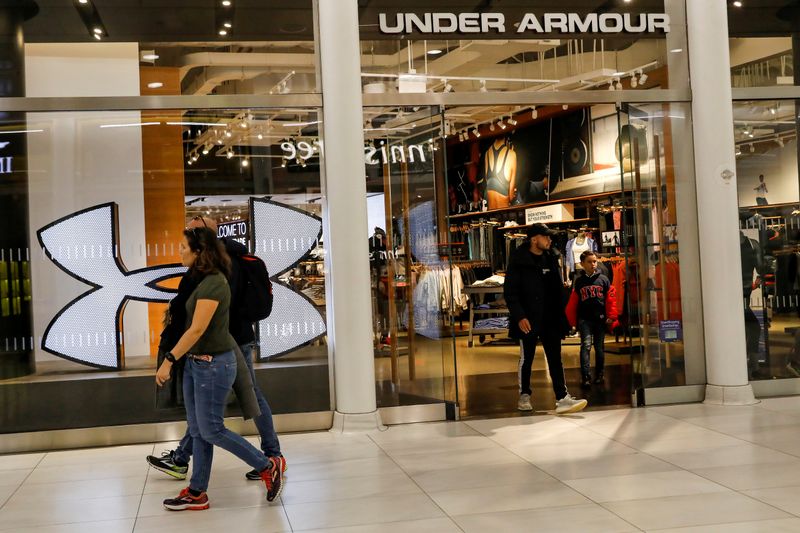Under Armour Inc (NYSE:UAA). shares have tumbled to a 52-week low, touching down at $6.17, as the sportswear company grapples with a challenging retail environment and strategic shifts. This latest price level reflects a significant downturn from the previous year, with the stock experiencing a 1-year change of -20.82%. Investors are closely monitoring the brand's performance as it navigates through competitive pressures and attempts to strengthen its market position. The decline to this year's low point underscores the hurdles Under Armour (NYSE:UA) faces in a rapidly evolving industry.
In other recent news, Under Armour, Inc. has seen significant activity, including the settlement of a 2017 shareholder class action lawsuit for $434 million. The company plans to use its available cash and $1.1 billion revolving credit facility to handle the settlement. This decision introduces new financial risks and reduces Under Armour's financial flexibility. In terms of earnings and revenue, UBS reaffirmed a Buy rating on Under Armour, predicting an in-line report for the first quarter of 2025 and an expected reiteration of its full-year 2025 earnings per share (EPS) guidance of $0.18 to $0.21.
Moreover, Morgan Stanley (NYSE:MS) downgraded Under Armour from Equalweight to Underweight along with a new price target of $4.00, indicating potential downside. The downgrade was based on concerns about the company's limited growth prospects and the risk of negative earnings per share revisions. In contrast, Skechers USA (NYSE:SKX) Inc. received an upgrade from Morgan Stanley from Equalweight to Overweight, based on positive results from proprietary research and the potential for positive earnings per share revisions over the next twelve months.
These are the latest developments for both Under Armour and Skechers as they navigate the competitive sportswear market. Analysts from firms such as Barclays (LON:BARC) Capital Inc., BMO Capital Markets Corp., Williams Trading, and Evercore ISI continue to adjust their ratings and price targets for Under Armour accordingly.
InvestingPro Insights
Under Armour's stock price volatility is a crucial point for investors to consider, and the recent dip to a 52-week low highlights this aspect of the company's market behavior. In light of this, one of the InvestingPro Tips suggests that while the stock price movements are indeed quite volatile, it is also worth noting that Under Armour's liquid assets surpass its short-term obligations, indicating a degree of financial resilience.
Despite the challenges faced in the retail sector, analysts predict that Under Armour will be profitable this year, a sentiment supported by the company's performance over the last twelve months. In terms of financial metrics, Under Armour holds a P/E ratio of 12.01, and a Price/Book ratio as of Q4 2024 stands at a modest 1.3, which could signal that the stock is potentially undervalued.
InvestingPro Data reveals that Under Armour's revenue for the last twelve months reached $5.7 billion, with a gross profit margin of 46.13%, underscoring the company's ability to maintain profitability despite revenue contraction. The operating income margin for the same period was 4.14%, reflecting the company's operational efficiency.
For investors seeking a comprehensive analysis of Under Armour's financial health and future prospects, there are additional InvestingPro Tips available at https://www.investing.com/pro/UAA. These tips delve deeper into the company's financials, offering insights that can inform investment decisions in the context of the current retail landscape.
This article was generated with the support of AI and reviewed by an editor. For more information see our T&C.
